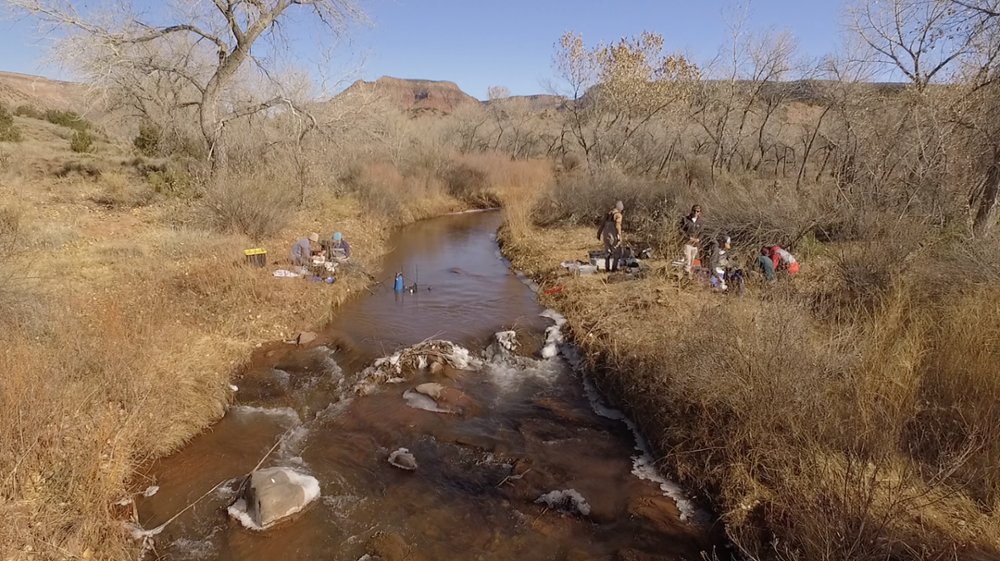Recent News
Ferenchak named chair of Transportation Research Board Pedestrian Committee
October 31, 2025
Ferenchak named APBP 2025 Research Professional of the Year
October 1, 2025
UNM professor to speak at TEDxABQ event
September 24, 2025
NSF funds research to investigate whether treated wastewater can help mitigate water scarcity in arid regions without compromising river ecosystem health
September 2, 2025
News Archives
Dr. Ricardo González-Pinzón’s team wins grant
November 8, 2018 - CCEE
Grant title: Physical, resource supply, and biological controls on nutrient processing along the river continuum

Dr. González-Pinzón (principal investigator) and Dr. Van Horn were recently awarded a one-year, $200,000 research grant to develop data-driven mechanistic understanding of three factors that largely control nutrient uptake and export in fluvial networks: 1) interactions between transport related processes (mass-transfer to metabolically active zones), 2) resource supply dynamics (nutrient concentrations, stoichiometric constraints, etc.), and 3) biological controls (microbial community structure and function), and how these key factors drive nutrient uptake along a river continuum. To meet these goals, the team will pursue three specific research objectives: RO1) Investigate how changes in river sediment texture control mass-transfer to metabolically active zones, colonizable surface area, and biological nutrient uptake along the river continuum; RO2) Investigate nutrient uptake kinetics along the river continuum considering limiting vs. non-limiting (i.e., stoichiometrically balanced) conditions, and labile vs. recalcitrant organic matter sources; and RO3) Investigate differences in microbial diversity, community structure, and genomic potential along the river continuum and how differences interact with resource supply to impose fundamental controls on nutrient uptake.
This research will directly support DOE’s mission to improve scientific understanding and prediction of the function of natural and managed watersheds. The team will work closely with the Pacific Northwest National Laboratory (PNNL) Subsurface Biogeochemical Research (SBR) team, which focuses on understanding fine-, local-, reach- and regional- scale biogeochemical processes to become a pioneer on the integration of hydrobiogeochemical function of dynamic river corridor ecosystems.
